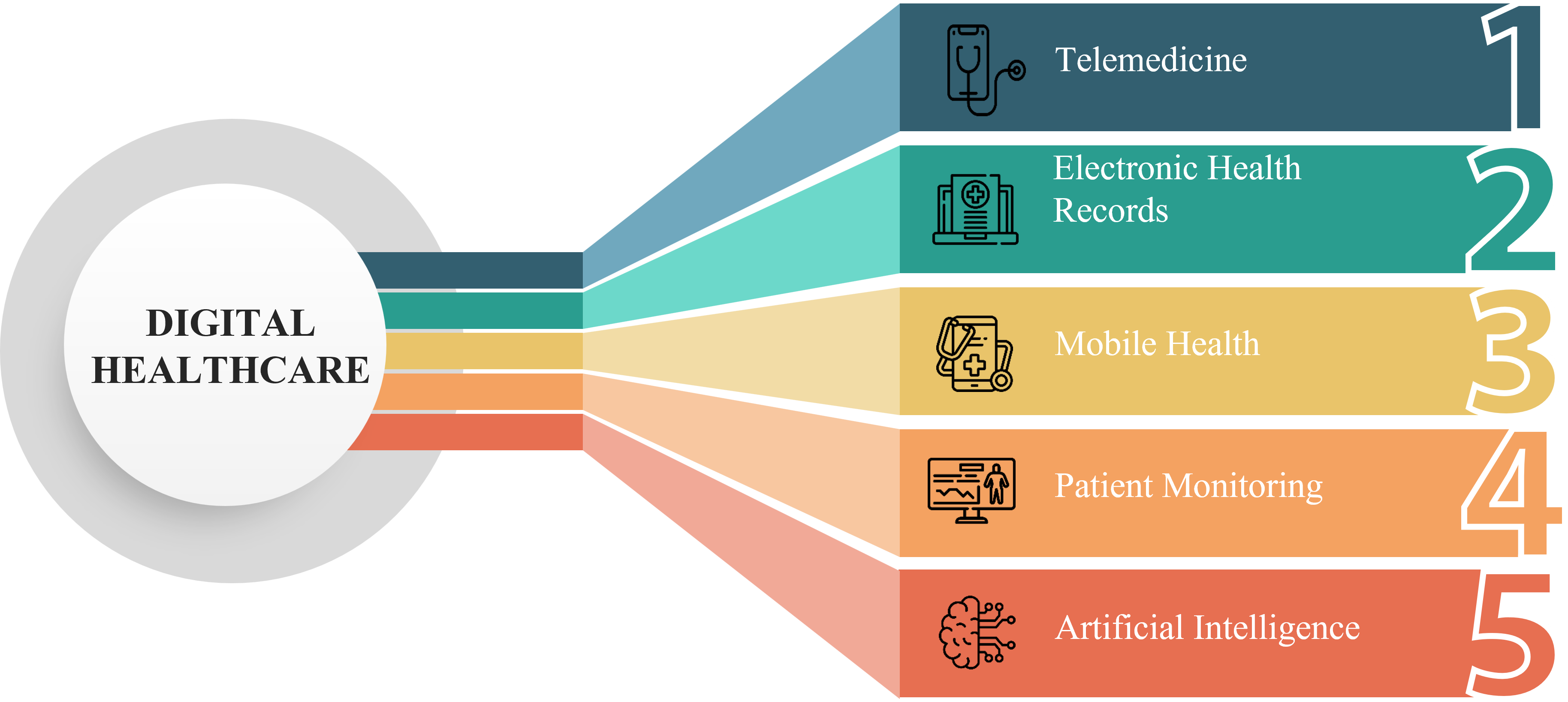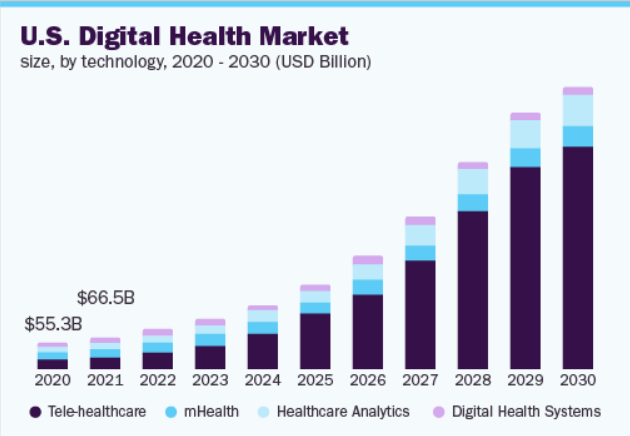2025-04-18
Meet Your New Digital Coworker: Autonomous AI Agents for Smarter Workflows
28 April, 2023
Healthcare

The healthcare sector has advanced significantly over the past few decades, with technology improvements being a major factor in this development. With new chances to increase patient outcomes, boost efficiency, and save costs, digital technology in healthcare has played a crucial role in the evolution of healthcare. Looking ahead, it is obvious that digital technology will continue to be a major driver in the healthcare sector.
In this blog post, we'll explore the benefits of digital technology in healthcare and how C-level executives can leverage these advancements to drive growth and innovation in their organizations.
Digital technology in healthcare has a wide range of positive effects. Enhancing patient outcomes is among the most important advantages. Digital technology enables medical professionals to diagnose patients more quickly and accurately, which can improve the effectiveness of treatment. For instance, remote patient monitoring can spot changes in a patient's health status before they become serious, enabling quick intervention and treatment.
Enhanced efficiency is an additional advantage of digital technology in healthcare. Digital technology can assist healthcare professionals in reducing time spent on tasks and expenditures by optimising workflows and removing pointless tests and procedures. For instance, telemedicine can reduce the need for in-person consultations, saving both patients and providers time and money on travel.
Digital technology can also enhance the patient experience by providing more convenient and accessible care. Telemedicine, for example, allows patients to receive medical advice and treatment from the comfort of their homes, without having to take time off work or travel long distances.
Also, Read: How PowerApps Can Benefit the Healthcare Industry

Digital technology in healthcare encompasses a wide range of features, including:
• Telemedicine: The provision of remote medical consultations through the use of video conferencing & other communication technology.
• Electronic Health Records (EHRs): Digital records that contain information about a patient's medical history, current medications, results of lab tests, and other pertinent information.
• Mobile Health (mHealth): The use of portable electronics like smartphones and tablets to support medical care.
• Remote Patient Monitoring (RPM): The use of medical devices to monitor patients' health remotely.
• Artificial Intelligence (AI): The analysis and prediction of vast volumes of data using computer algorithms and machine learning.

Source: https://www.grandviewresearch.com/
The future of healthcare is bright, with digital technology poised to play an increasingly important role. One area where we can expect to see significant growth is in the use of AI. AI has the potential to revolutionize healthcare by analyzing vast amounts of patient data to identify patterns and trends, leading to more accurate diagnoses and treatment suggestions.
As wearable devices and other remote monitoring technologies continue to advance and become more affordable, we can expect to see significant growth in their use. This will enable more comprehensive monitoring of patients' health, leading to better treatment outcomes and more personalized care.
Summing Up
Digital technology offers new chances to improve patient outcomes, increase efficiency, and lower costs, making the future of healthcare exciting. We may anticipate substantial progress in the years to come as healthcare organisations continue to invest in digital technologies.
Ready to streamline your healthcare research data? Learn how our data management solutions helped a major healthcare research company achieve success.Click now to read the case study!
Digital technology in healthcare refers to the use of digital devices, platforms, and software to improve healthcare delivery, patient outcomes, and efficiency.
Digital technology can improve patient outcomes, enhance efficiency, reduce costs, and provide more convenient and accessible care.
Digital technology can improve patient outcomes by enabling more accurate and timely diagnoses, more personalized treatment, and more comprehensive monitoring of patients' health.
Digital technology can enhance efficiency by streamlining workflows, eliminating unnecessary tests and procedures, and automating routine tasks.
Yes, digital technology is poised to play an increasingly important role in healthcare in the future, with advancements in AI, remote monitoring technologies, and other digital tools providing new opportunities to improve patient outcomes and efficiency.
Latest Posts
OUR BLOG
© 2025 Pronix inc. All Rights Reserved